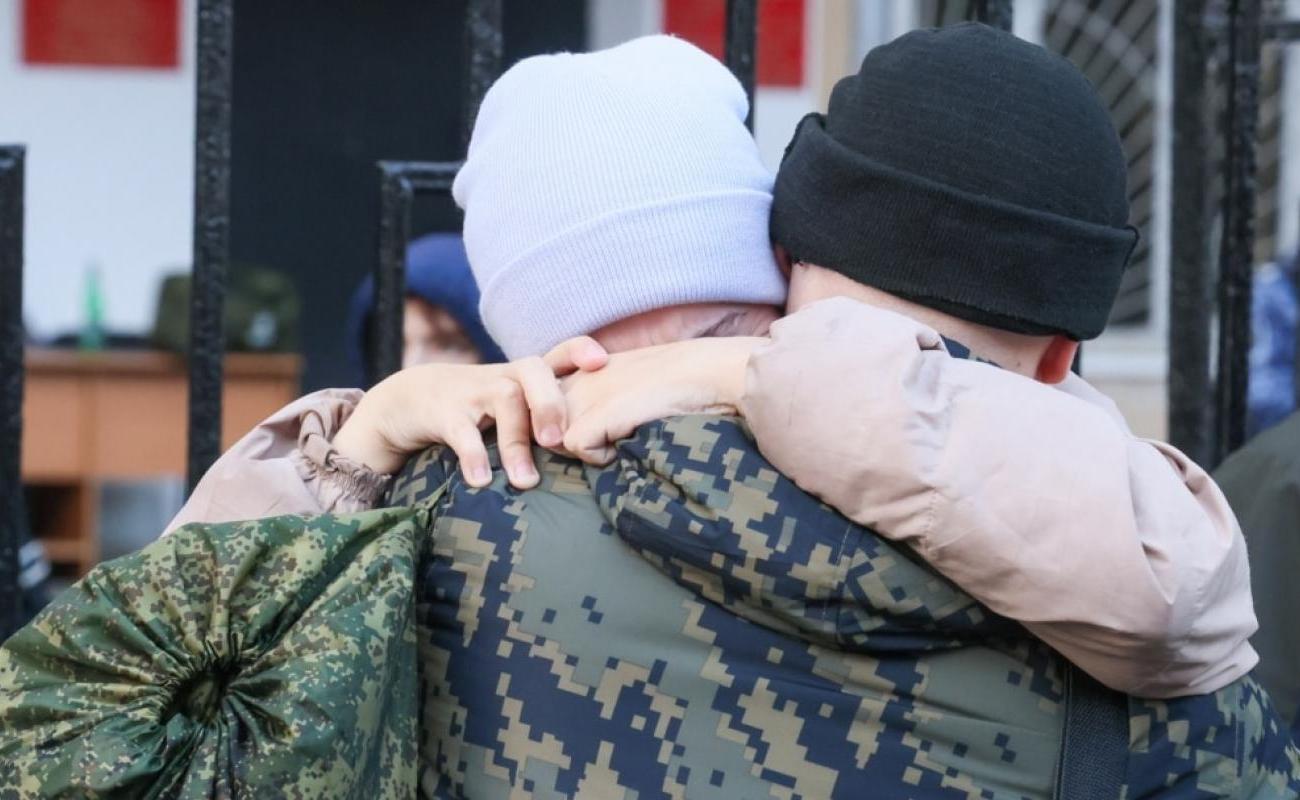How do russians avoid military conscription?

Hundreds of thousands of Russian citizens have fled their homeland since President Vladimir Putin announced a "partial mobilization" in September 2022 to provide 300,000 troops for the war in Ukraine.
The Go by the Forest group operating out of Georgia helps those who want to avoid going to the battlefield. Why?
The Georgia-based NGO claims to have helped nearly 6,800 Russians avoid the battlefield since it was founded half a year ago, including more than 5,100 it says would otherwise have been safely sent to fight.
"We helped them become deserters," the group boasts of its work, reports Radio Free Europe (RSE).
The name, Go by the Forest, is a play on words, a reference to the secretive nature of their work, but also a popular Russian idiom that translates throughout the former Soviet Union as "get lost!".
Russian President Vladimir Putin signed a law allowing the creation of a digital system for calls for military service, which greatly facilitates mobilization.
The law allows for a digital draft system that will prevent conscripted men from leaving the country and make evasion and non-response to military conscription nearly impossible.
The move raised new fears in Russia as Moscow's military campaign in Ukraine entered its second year.
Go by the Forest says it was once again inundated with new inquiries from concerned Russians after this.
The new law is forcing the Russians into war
Three days after the law was announced and Putin signed it, nearly 2,000 Russians turned to the organization for help.
"The main purpose of this [Russian] law is to force people to go to war," Grigory Sverdlin, founder of Go by the Forest, told RFE/RL's Georgian service.
"The authorities can take as many people as they need at any time," adds Sverdlin.
Sverdlin and another Russian woman who opposes the war, Daria Berg, are the public faces of Go by the Forest.
They run a network of an unspecified number of employees, but they also have, as they say, "hundreds of volunteers who live outside of Russia, who maintain anonymity to avoid legal or other sanctions in Russia."
They provide legal advice and psychological help, along with practical advice on how to avoid conscription or active military service.
Go by the Forest declined to detail the assistance, or how it provides assistance to Russians who avoid conscription, but advice included changing residence or finding shelter in Russia to stay one step ahead of the authorities.
The group communicates through messaging apps Telegram and Instagram, and seeks support through donations.
A new Russian law aims to strengthen the nation's military service, as politicians and military analysts warn of a protracted war.
It introduces an electronic registry and enables digital draft notifications, and a state-run electronic portal bans those targeted for the draft from leaving the country.
Sverdlin left Russia for Georgia in March 2022, weeks after tens of thousands of Russian troops crossed the Ukrainian border following a massive, months-long military build-up that prompted US officials to warn of an imminent invasion.
Where are the Russians running away from the war?
Sverdlin's former organization Nočležka (Night Light) offered help to the homeless in Moscow and Saint Petersburg.
After Putin announced a partial mobilization six months later, Sverdlin took a "leave of absence for a few days", before deciding to launch Go by the Forest to help Russians who did not want to fight in Ukraine.
He said he had never seen the kind of outpouring of enthusiasm that greeted the newly formed group, to the effect: "100 volunteers for the project in the morning multiplied by 350 by evening."
Some of the most popular destinations for Russians fleeing conscription and war are countries like Kazakhstan, Turkey and even Argentina, but those countries have already tightened residency laws for Russians or reduced visa-free visits.
Not so with Georgia, whose government resisted sanctions against Russia and kept trade and other channels open with Moscow. And that even in the period when Russian troops hold about one fifth of Georgia - since the lightning war of 2008.
Reliable figures are hard to come by, but official figures show more than a million Russians crossed the border into Georgia between March and November 2022, according to local Jam News.
Georgia's Interior Ministry said there are still around 113,000 Russian citizens in the country, the most recent data available.
Last week, Sverdlin said that the recurrence of long lines at the Zemo Lars border crossing is unlikely to reach the proportions of last year, because:
"Most of those who could leave Russia have already left," he told the Georgian service of RSE/RL.
However, Sverdlin, whose activism has already contributed to the flight of many Russians, added that he is certain that a new wave of Russian emigration is on its way to Georgia, but also to some other countries - neighbors of Russia.
